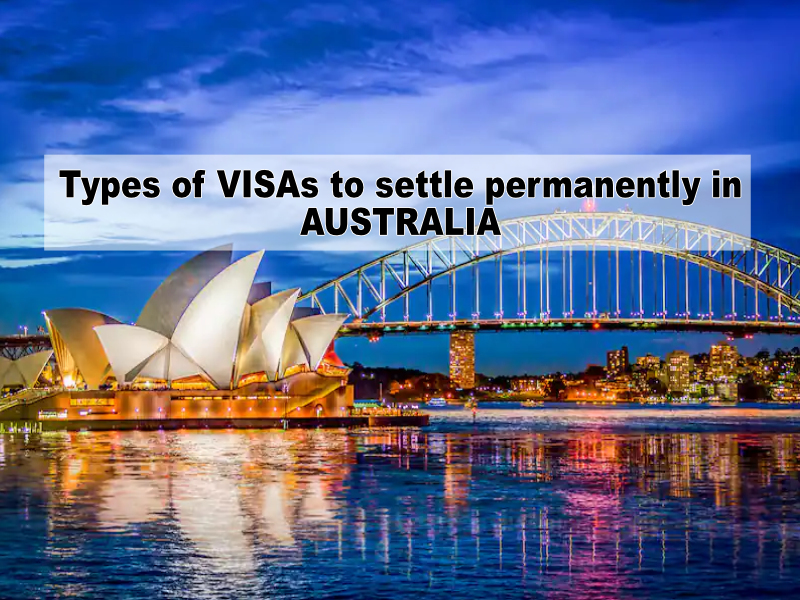If you are looking to settle permanently in Australia, there are several visa options available to you. Some common options include:
Skilled Independent Visa (subclass 189): This is a permanent visa that allows you to live and work in Australia indefinitely. To be eligible for this visa, you must have a skillset that is in demand in Australia, and you must be able to demonstrate that you have the skills and qualifications to fill a skilled occupation in Australia.
Skilled Nominated Visa (subclass 190): This is a permanent visa that allows you to live and work in Australia indefinitely. To be eligible for this visa, you must have a skillset that is in demand in Australia, and you must be nominated by an Australian state or territory government agency.
Employer Sponsored Visa: If you have a job offer from an Australian employer, you may be eligible for an employer sponsored visa. There are several different types of employer sponsored visas available, including the Temporary Skill Shortage Visa (subclass 482), the Regional Sponsored Migration Scheme Visa (subclass 187), and the Temporary Work (Skilled) Visa (subclass 457).
Family Visa: If you have a spouse, partner, or family member who is an Australian citizen or permanent resident, they may be able to sponsor you for a family visa. There are several different types of family visas available, including the Partner Visa (subclass 820 and 801), the Child Visa (subclass 101 and 802), and the Parent Visa (subclass 103 and 804).
It's important to note that these are just a few examples of the many different types of visas that are available to people who want to settle in Australia. The best option for you will depend on your individual circumstances and your long-term goals.
The Australian government maintains a list of skilled occupations that are currently in demand in Australia. This list, known as the "Skilled Occupation List" (SOL), is used to help determine which skilled workers are eligible for certain types of visas, including the Skilled Independent Visa (subclass 189) and the Skilled Nominated Visa (subclass 190).
The SOL is reviewed and updated regularly to reflect changes in the Australian labor market. Occupational categories on the SOL may include:
- Engineers
- IT professionals
- Tradespeople (such as electricians, plumbers, and carpenters)
- Health professionals (such as doctors, nurses, and dentists)
- Teachers
- Accountants
- Scientists
It's important to note that the SOL is not exhaustive, and there are many other skilled occupations that may also be in demand in Australia. If you are unsure whether your skillset is in demand in Australia, you may want to consider consulting with a migration agent or seeking advice from the Australian government.
Here is a link to the Skilled Occupation List (SOL) on the Australian government's Department of Home Affairs website:
https://immi.homeaffairs.gov.au/visas/working-in-australia/skillselect/skilled-occupations-lists/sol
Please note that the SOL is reviewed and updated regularly to reflect changes in the Australian labor market, and it is important to check for the most current version of the list.
The most in-demand skills in Australia vary over time and can depend on a range of factors, such as the state of the economy, changes in technology, and the needs of specific industries. Some examples of skills that have been in high demand in Australia in recent years include:
Technology skills: Australia has a strong and growing tech sector, and there is a high demand for professionals with skills in areas such as software development, data analysis, and cybersecurity.
Healthcare skills: There is always a high demand for healthcare professionals in Australia, including doctors, nurses, and allied health professionals such as physiotherapists and occupational therapists.
Trades skills: Australia has a strong construction industry and there is a high demand for tradespeople such as electricians, plumbers, and carpenters.
Language skills: Australia is a multicultural country and there is a high demand for professionals with language skills, particularly in areas such as translation and interpreting.
It's important to note that these are just a few examples of the many different types of skills that are in demand in Australia. The best way to find out which skills are currently in demand in Australia is to consult with a migration agent or seek advice from the Australian government.

0 comments